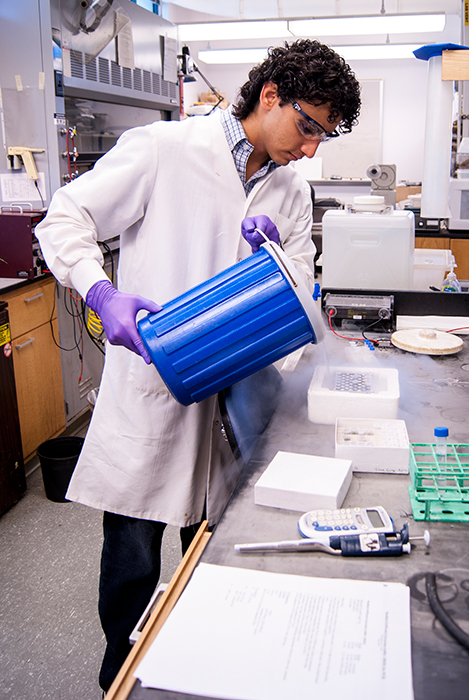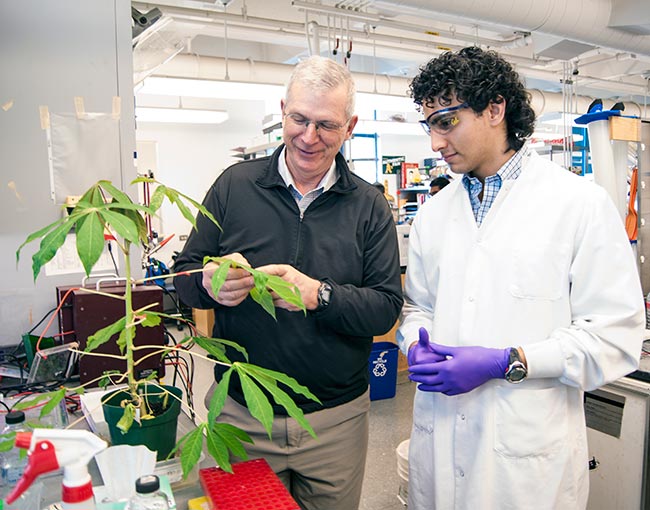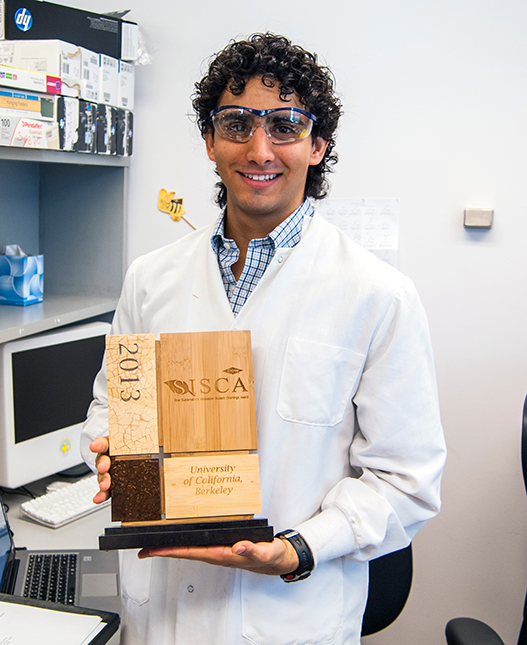Innovative Research on Staple Food Crop

Primary Food Source
Cassava is a major staple food in the developing world, providing a basic diet for more than half a billion people. It is extensively cultivated as an annual crop in the tropical and subtropical regions of the world for its edible starchy tuberous root, a major source of carbohydrates.

Cassava in some form feeds more than 750 million people each day. While it is an important food crop it also has limitations, mainly that it is extremely susceptible to plant diseases like Cassava Brown Streak Disease.
The disease is ravaging cassava crops along the East African coast and around Lake Victoria, threatening millions of east Africans who rely on cassava for food. The virus has been present on coastal farms for several decades but it was not a serious economic threat until 2004, when a Cassava Brown Streak Disease epidemic started along the coast and a new virus emerged in the highlands of East Africa, spread by the whitefly. Since then, there has been an explosive, pandemic-style spread in the whole region. Farmers are desperate to get the plant disease under control.
Generating Resistance
What Gomez is working on is a way to build in genetic resistance to Cassava Brown Streak Disease.
"The objective of my project is to generate durable genetic resistance to potyvirus infection in cassava," Gomez said. He hopes to use the CRISPR-Cas system to make genome edits in the plant DNA that will confer resistance to this disease. "Application of this system to combat potyvirus infections in cassava and other crops can serve as a sustainable solution to global food challenges," Gomez said.
Gomez is performing this work in the laboratory of Brian Staskawicz, a professor in the Department of Plant & Microbial Biology at UC Berkeley. The Staskawicz lab is known worldwide for its work on plant immunity against disease, and it is that research that drew Gomez to choose the lab for his graduate program research.
Next Step in Gomez's Research

There are many steps left to Gomez's research before it comes to fruition. Ultimately he hopes to carry his work to completion and actually see it implemented on crops in Africa.
"I want complete involvement in the generation of CBSD-resistant cassava, and that will involve travelling and working with collaborators across the US and perhaps Africa," Gomez said.
The title of his presentation in the competitive event held in early December was "Plant Genome Engineering by the CRISPR-Cas System for Potyvirus Resistance."
"Michael's work embodies the kind of leading edge, science-based and business-relevant research that the Center for Responsible Business seeks to support and promote," said Jo Mackness, Executive Director for the Center for Responsible Business. "His is an innovative and unique approach to addressing a very real world challenge—aligned with Dow's aggressive sustainability goals and the intent of the SISCA program."
Runners-up in the competition were:
- WattTime: An Environmental Demand Response Platform (Category: Energy and Climate Change) Gavin McCormick, Ph.D. student, Agricultural and Resource Economics; Anna Schneider, Ph.D. candidate, Biophysics Graduate Group and Chemistry Department; Dilek Uz, Ph.D. student, Agricultural and Resource Economics
- Innovative Platform Design for Floating Vertical-Axis Turbines (Category: Energy and Climate Change) Samuel Kanner, Ph.D. candidate, Department of Mechanical Engineering
Links:
